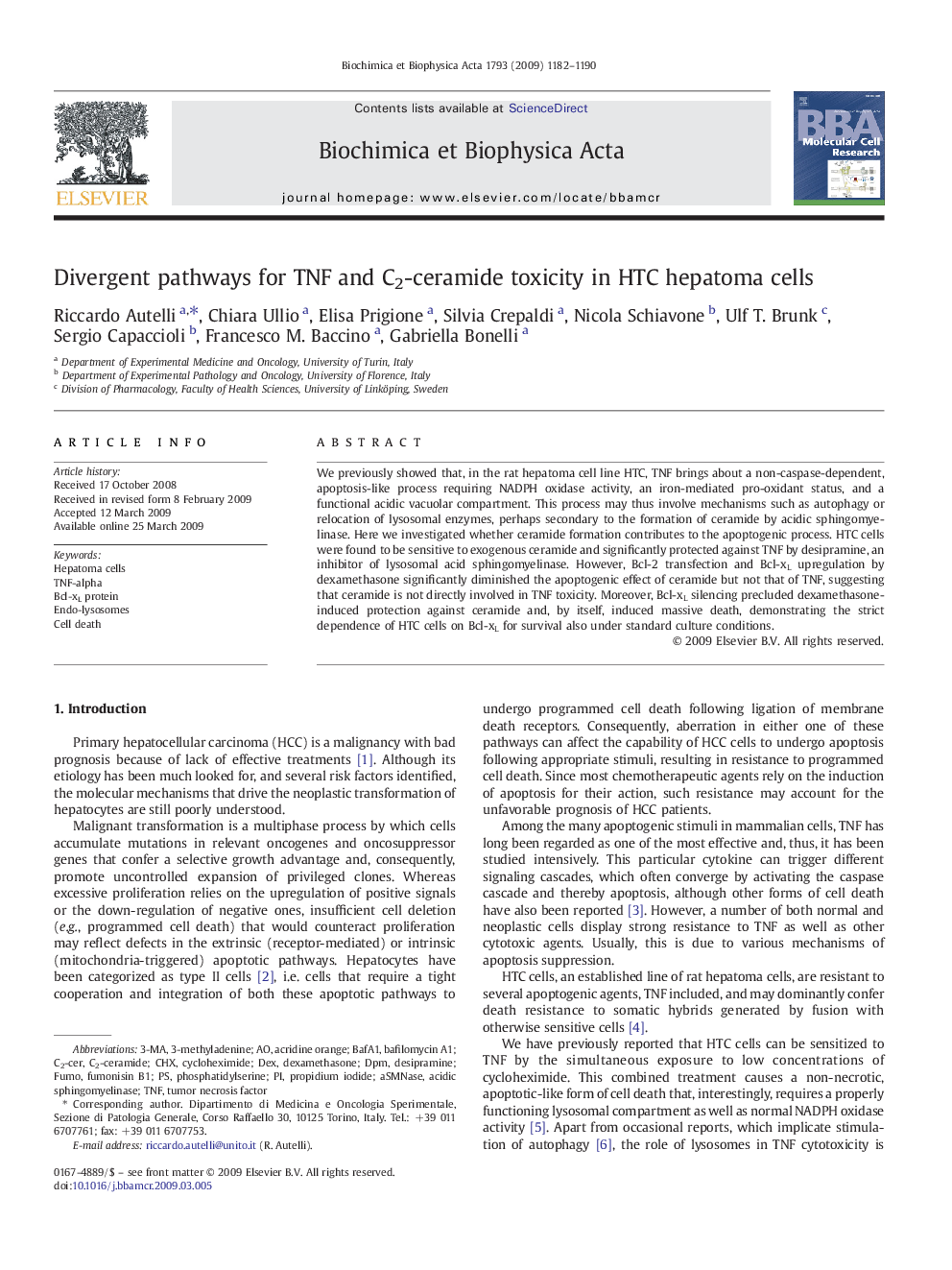| Article ID | Journal | Published Year | Pages | File Type |
|---|---|---|---|---|
| 10802941 | Biochimica et Biophysica Acta (BBA) - Molecular Cell Research | 2009 | 9 Pages |
Abstract
We previously showed that, in the rat hepatoma cell line HTC, TNF brings about a non-caspase-dependent, apoptosis-like process requiring NADPH oxidase activity, an iron-mediated pro-oxidant status, and a functional acidic vacuolar compartment. This process may thus involve mechanisms such as autophagy or relocation of lysosomal enzymes, perhaps secondary to the formation of ceramide by acidic sphingomyelinase. Here we investigated whether ceramide formation contributes to the apoptogenic process. HTC cells were found to be sensitive to exogenous ceramide and significantly protected against TNF by desipramine, an inhibitor of lysosomal acid sphingomyelinase. However, Bcl-2 transfection and Bcl-xL upregulation by dexamethasone significantly diminished the apoptogenic effect of ceramide but not that of TNF, suggesting that ceramide is not directly involved in TNF toxicity. Moreover, Bcl-xL silencing precluded dexamethasone-induced protection against ceramide and, by itself, induced massive death, demonstrating the strict dependence of HTC cells on Bcl-xL for survival also under standard culture conditions.
Keywords
Related Topics
Life Sciences
Biochemistry, Genetics and Molecular Biology
Biochemistry
Authors
Riccardo Autelli, Chiara Ullio, Elisa Prigione, Silvia Crepaldi, Nicola Schiavone, Ulf T. Brunk, Sergio Capaccioli, Francesco M. Baccino, Gabriella Bonelli,
